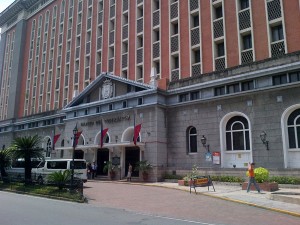MANILA, Philippines–The P300-million negotiated deal between the Commission on Elections (Comelec) and Smartmatic for the fault detection or diagnostics of the 82,000 precinct count optical scan (PCOS) voting machines was neither fully justified nor compliant with Republic Act No. 9184, or the Government Procurement Reform Act.
This was pointed out by Comelec Commissioners Luie Tito Guia and Arthur Lim, who both voted against the Comelec’s entering into a direct contracting agreement with the automated election system provider. The Comelec voted 5-2 in favor of the contract.
In his dissenting opinion on Comelec Resolution 9922, issued on Dec. 23, Guia said he was “not convinced that resorting to alternative procurement (negotiated contract) is fully justified at this point.”
“In determining whether the conditions for direct contracting were met, the majority placed great weight on the representations of Smartmatic in the documents it recently furnished the commission. Having been sourced solely from Smartmatic, the representations given are at best self-serving,” he said.
According to Guia, “the P300-million contract is too substantial an amount for us to readily accept the representations of Smartmatic and abandon the option of public bidding.”
Smartmatic’s claims “need to be independently verified. Otherwise, it cannot give the commission sufficient basis and legal justification to resort to alternative modes of procurement.”
Public trust, credibility
Guia also pointed out that the Comelec bids and awards committee, in a May 20 memorandum, “found that direct contracting cannot immediately be resorted to.”
He said that while timelines—as invoked by the majority in the commission in preferring Smartmatic—were important, especially in preparing for an election with a fixed date, public trust and the credibility of the electoral process were equally important.
“Transparency is key to gaining public trust and confidence in elections,” he said.
Guia believes the diagnostics, repair and maintenance of the PCOS machines should be done by the Comelec’s in-house information technology personnel.
“It is assumed that after two automated elections (in 2010 and 2013), they should have already acquired the necessary knowledge, skills and expertise to perform basic maintenance, diagnostic and repair works on the PCOS machines. There is an obvious imperative for the Comelec to ensure that our elections are not dependent on private technology providers for the basic repair and maintenance of procured voting or counting machines,” he said.
Lim said all of the Comelec’s procurement activities should be done through public bidding, except for the exceptions provided for in RA 9184 and in its implementing rules and regulations.
Full compliance
He said he agreed with the law department’s recommendation in its Nov. 4 memorandum that the commission en banc “may not engage in direct contracting or single source bidding with Smartmatic” and that “all means must be exhausted to ensure that the contract for the repair or refurbishment of our PCOS machines are fully compliant with the Government Procurement Law.”
Lim said a public bidding, if the time would allow, was “the safest course of action to take” to conform to RA 9184.
He said a public bidding would also properly address the “risk” cited by some of his colleagues in contracting a third-party provider.
Those who voted for the PCOS deal with Smartmatic were Comelec Chair Sixto Brillantes and Commissioners Lucenito Tagle, Elias Yusoph, Christian Robert Lim and Al Parreño.
RELATED STORIES
Smartmatic bags P1.2B poll contract; Comelec hit
Smartmatic: We own PCOS rights
